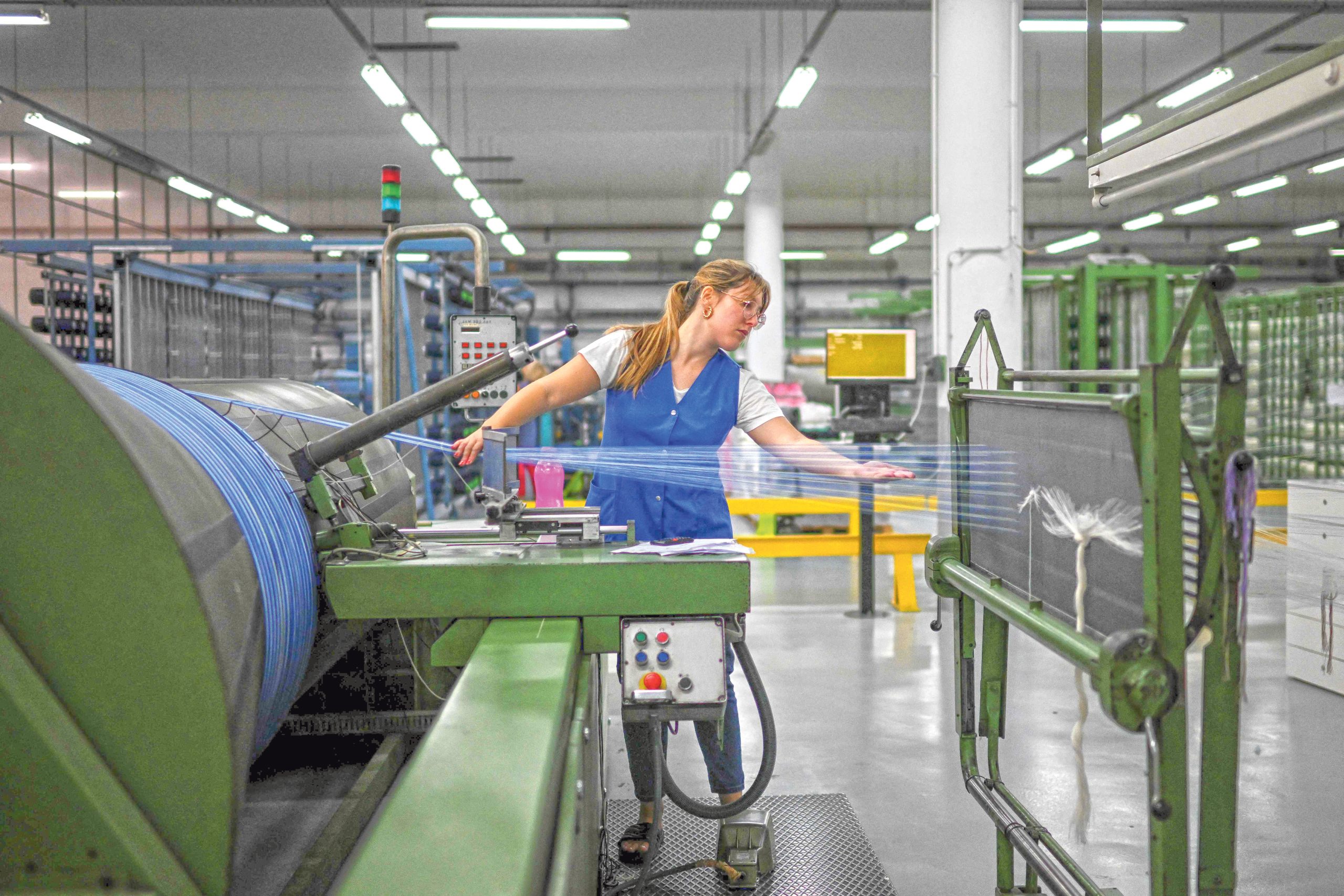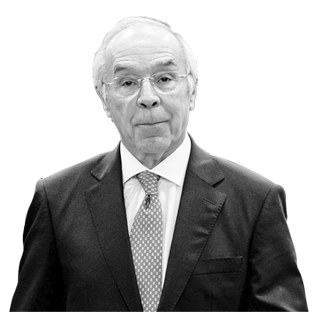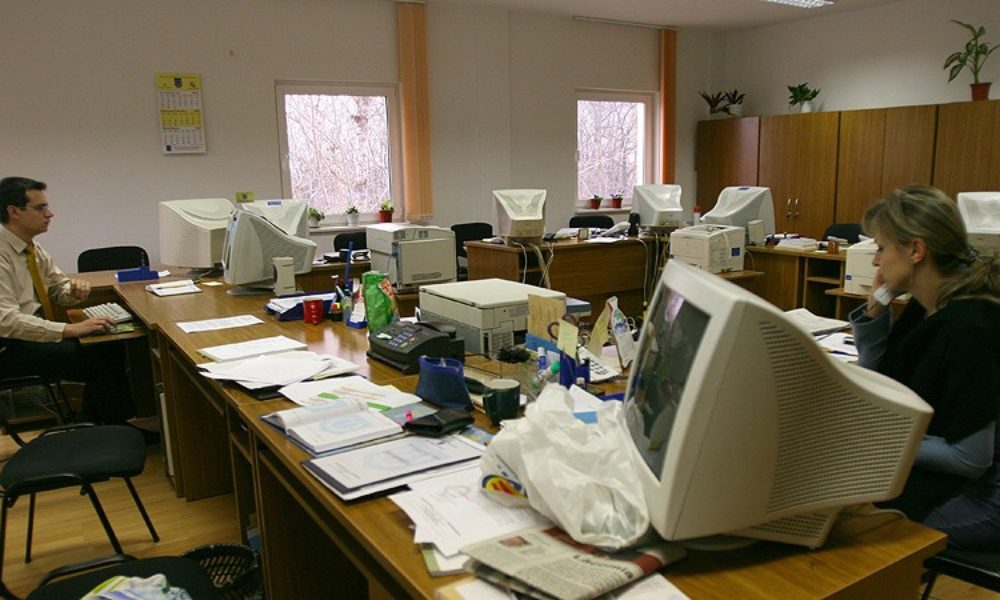Minimum wage crushes average salary

The average base remuneration in Portugal is getting closer and closer to the National Minimum Wage (SMN). The warning is from Eugénio Rosa when considering that we are turning into a ‘minimum wage country’. According to the economist, it is « urgent to take action » to retain Portuguese workers in the national market, thus avoiding « the enormous emigration of the most qualified, about 50,000 a year ».
According to the accounts of Eugénio Rosa, in 2022, the percentage of the national minimum wage in relation to median income corresponded to 86.4%, according to the accounts of the Ministry of Labor. A situation that, he says, has been aggravated in the following years: 88.5%, in 2023, and 85.3%, in 2024 (see table) and should remain this year.
« With this policy of income, maintenance and generalization of very low income for workers and most of the population, sustained and high economic growth is impossible and developing the country, » he says, adding that « this policy can only promote the emigration of more qualified workers and at the most productive age to create wealth in other countries. »
John César das Neves also admits to the sunrise that for many years the minimum salary has risen more than the average salary, which leads him to make harsh criticism by the path that has been followed. « The minimum wage must be a structural parameter of the economy, but since it has become a policy instrument, the entire wage range has been unbalanced. » And points the finger: “This instrument is demagogic, because it is companies and not the state that pays the minimum wage, the state pretends to improve workers’ lives without spending a penny. The only way to solve this would be to avoid demagogy and consider the reality of the labor market. But since 2005 almost all governments have fallen into the same trap.
A situation that, according to the economist, leads to ‘artificial policy’, leading to the strangulation of many companies and, thus, ‘we promote a low productivity and low salaries economy. This still encourages that demagogy.
Already Paulo Monteiro Rosa, economist at Banco Carregosa recalls that the national minimum wage has been following the growth of nominal Gross Domestic Product (GDP) over the last few years, noting that since 1990, nominal GDP has multiplied by five, while SMN has increased about 4.7 times, a growth very close to GDP. But it makes a caveat: “When we look at the impact of salaries on GDP we see a tendency to reduce wage weight on the economy. Despite the growth of SMN and nominal GDP, salary participation in GDP has been decreasing, which means that although the minimum wage has followed the expansion of the economy, the difference between the average wage and the minimum wage has been reducing itself. This phenomenon indicates that, in fact, the compression of the salary structure has been a reality in Portugal, with the average salary approaching the minimum gradually ‘.
And gives an explanation to this’ crushing ‘:’ This phenomenon can be explained by three main factors. Firstly, the policy of sustained valorization of the minimum wage, with an important role in the mitigation of labor poverty. Second, salary stagnation in many low -qualification sectors, where remuneration growth has been modest. Finally, the very structure of employment, with a growing weight of sectors such as services, agriculture or tourism, contributes to a lower average salary.
However, the economist admits that the compression of the salary structure raises concerns, namely by reducing incentives for qualification, blocking social mobility and the negative impact on productivity. And to reverse this trend that it is necessary to adopt structural measures, such as investing in formation and requalification, especially in technical and digital skills, promoting productivity in SMEs through innovation and internationalization and reviewing tax department to alleviate the tax burden on average income.
Still, it draws attention to the fact that increasing the minimum wage is an effort to reduce labor poverty and to improve living conditions. But not only. On the other hand, “salary stagnation in some sectors and the faster average salary growth generates inequality. To counteract this trend, it is necessary to foster the valorization of wages in all sectors of the economy, focusing on qualification, innovation and increased productivity.
And Europe?
According to the latest Eurostat data, the minimum wage in Portugal is around 1,015 euros, as the amount is paid in 14 installments – vacation and Christmas allowance – unlike most countries that pays in 12 months, placing our country in 11th place in the ranking.
Luxembourg emerges as the country with the highest minimum wage in the European Union, 2,638 euros per month. On the opposite side is Bulgaria, with a minimum wage of 551 euros, the lowest of European space.
Eurostat thus places Portugal in the intermediate group of European minimum wages, ranging from 1,000 euros in Cyprus to 1 323 in Spain (in force on July 1, 2024). The group also includes Slovenia, Lithuania, Cyprus and Poland.
The average minimum wage growth rate in January 2025 was more pronounced in Romania (+14.1 %), Lithuania (+13.2 %), Bulgaria (+11.6 %) and Poland (+10.3 %). Portugal is out of the top 4.
Regarding the disparity between the minimum wage and the purchasing power, Portugal descends to 13th place, with Germany in the first and the last.
In César das Neves’s understanding, Portugal continues to have in Europe one of the societies with more dysfunctional labor laws. “The drama is that the main victims are the workers themselves, especially the poorest. At the end of 50 years of this strategy the results are evident.
And the economist adds: “In the other countries of the Union, where workers do not enjoy the alleged Portuguese rights, the real conditions of workers are really much better. But we continue to insist on the same wrong line.
Also Paulo Monteiro Rosa admits that, when compared to other European Union countries, Portugal has a lower minimum wage and a more modest wage growth. “The Portuguese economy depends on sectors with low wages, such as tourism and agriculture, as countries such as Scandinavia – Sweden, Denmark and Norway – and Germany have more diverse and higher added economies, which contributes to higher wages and greater economic stability. In addition, regional disparities in Portugal are accentuated, especially between the coast and the interior ”, also mentioning that“ the lack of qualification and low productivity are also challenges compared to countries with more investment in education and innovation. To improve, it is necessary to focus on the qualification, innovation and appreciation of average salaries ».




:format(webp)/s3/static.nrc.nl/images/gn4/stripped/data133212425-ae69bf.jpg)


